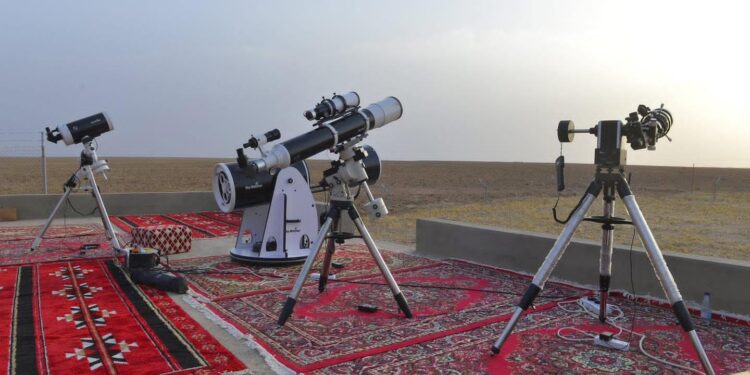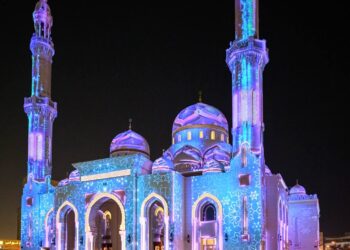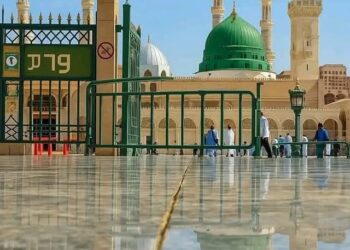
By Ibrahim Kegbegbe
Saudi Arabia, the birthplace of Islam and the custodian of its two holiest cities, has long positioned itself as the leader of the Muslim world. However, the kingdom’s growing alignment with Western powers, its economic and social policies, and its controversial decisions regarding Islamic practices raise concerns about its commitment to the fundamental principles of Islam.
Political and Economic Paradoxes
Islamic governance emphasizes Shura (consultation), yet Saudi Arabia remains an absolute monarchy that suppresses political dissent. Its close ties with the United States, particularly in multi-billion-dollar arms deals, have led critics to argue that Riyadh prioritizes Western geopolitical interests over Islamic unity.
Saudi Arabia’s financial system further reflects contradictions. Despite Islam’s prohibition of riba (usury), the kingdom allows interest-based banking to operate alongside Islamic banks. Islamic economist Dr. Muhammad Nejatullah Siddiqi has stated, “Riba is not just a sin; it is an instrument of economic oppression.” Furthermore, while Saudi Arabia accumulates immense wealth from oil, it channels substantial funds into Western economies rather than supporting struggling Muslim nations.
Cultural and Religious Contradictions
The Saudi government has embraced sweeping social reforms, including the introduction of cinemas, concerts, and mixed-gender events. While Crown Prince Mohammed bin Salman defends these changes as necessary for modernization, many Islamic scholars argue they erode traditional values. Sheikh Abdulaziz al-Tarifi, before his arrest, warned, “When entertainment replaces the Quran in a society, the faith of the people declines.”
Additionally, Saudi Arabia has faced criticism for its treatment of foreign laborers. Reports from Amnesty International and Human Rights Watch document abuses, including unpaid wages and harsh working conditions, directly contradicting Prophet Muhammad’s (PBUH) teaching: “Give the worker his wages before his sweat dries.”
Saudi authorities have also demolished significant Islamic historical sites to make way for commercial developments. Historian Sami Angawi notes, “99% of Mecca’s historic structures have been destroyed in the last 20 years.” While Western nations prioritize preserving their historical landmarks, Saudi Arabia appears more focused on economic gains.
Eid al-Fitr Controversy and Nigeria’s Religious Divide
A recent controversy surrounding Saudi Arabia’s declaration of Eid al-Fitr on Sunday, March 30, 2025, despite astronomical evidence suggesting an impossibility of moon sighting, has sparked debate among Islamic scholars and communities worldwide. The International Astronomical Centre had earlier stated that sighting the Shawwal crescent on March 29 was impossible, yet Saudi Arabia proceeded with its announcement.
Sheikh Habibullah Adam Al-Ilory, the Mudir of Markaz Agege in Nigeria, countered this decision by declaring Monday, March 31, 2025, as Eid al-Fitr based on astronomical calculations and traditional Islamic teachings. During the Laylatul Qadr program on March 27, he stated, “With the help of modern technology and knowledge of astronomical calculations, it has been confirmed that the crescent moon for Shawwal will be visible by March 30, making March 31 the first of Shawwal and the day of Eid.”
The dispute over the Eid declaration has also exposed deep divisions among Nigerian Islamic sects. Nigerian Salafis, who often criticize Saudi Arabia’s policies, surprisingly aligned with its Eid announcement, rejecting Sheikh Habibullah’s scientifically backed proclamation. Some observers argue that this stance stems not from religious adherence but from a long-standing opposition to the cleric’s influence and knowledge.
“It is ironic that those who frequently challenge Saudi Arabia’s missteps have now chosen to support an incorrect announcement, merely out of resentment toward an Islamic scholar with exceptional knowledge,” said a religious analyst from Lagos.
A Call for Islamic Unity and Authenticity
The controversy highlights a growing concern within the global Muslim community: the need for a more unified and knowledge-based approach to Islamic rulings. Saudi Arabia’s increasing reliance on unilateral decisions—often misaligned with Islamic principles—has led to skepticism about its role as the leader of the Muslim world.
The Merit Newspaper joins other international publications in recognizing Monday, March 31, as the first of Shawwal, standing with nations and scholars who prioritize scientific accuracy and religious authenticity. As Dr. Zakir Naik aptly stated, “Being Muslim is not about name or nationality; it is about following Islam.” Saudi Arabia and its supporters must decide whether they will uphold Islamic principles in practice or continue to use religious authority for political convenience.
This controversy serves as a wake-up call for the Muslim world to emphasize knowledge, unity, and justice—values that truly define Islam.

















